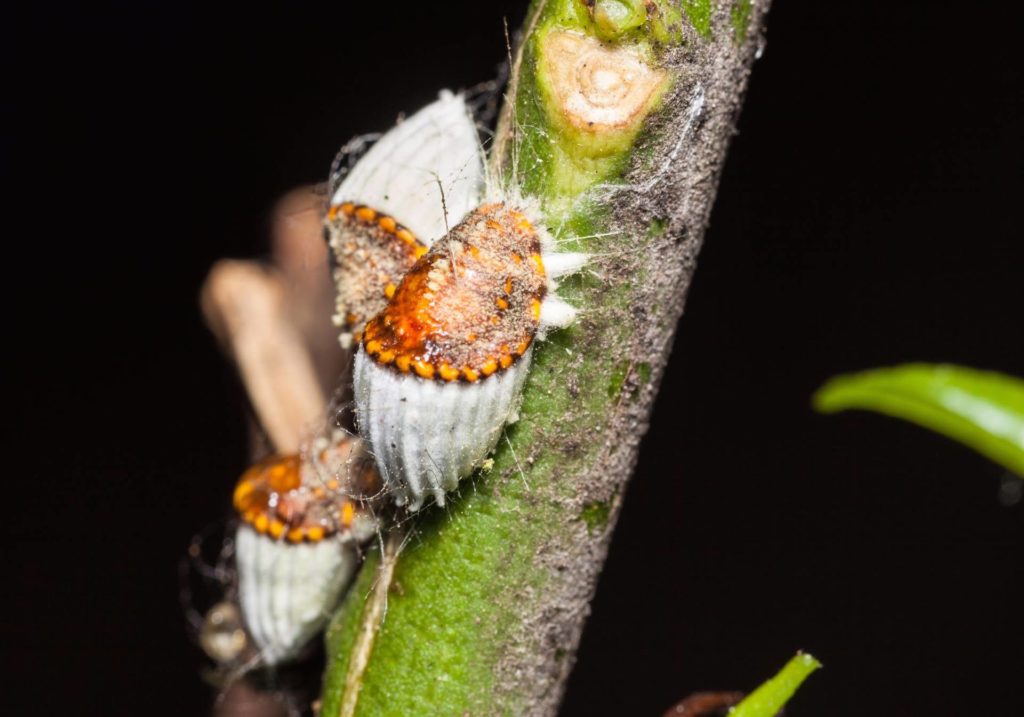TRUST UTAH TREE DOCTOR TO CLEAR UP YOUR PROPERTY'S SCALE INSECTS PROBLEM

What Is The Cause Of My Tree's Illness?
Hard shelled insects that stick themselves to leaves, needles, branching, and bark. Sucking sap out thus inflicting extensive damage.
Dangers Of Scale Infestation
Scale insects feed by sucking sap from trees and shrubs. Sap feeding by scale insects may cause yellowing or wilting of leaves, stunted growth or unsightly appearance. Eventually scale insects may cause the death of all or part of the plant when infestations are heavy. Weakened plants may lose vigor and become more susceptible to injury caused by drought, severe winters, attack by other insects (such as borers), or infection by diseases. While feeding scale insects excrete a sweet, sticky substance called honeydew. Honeydew is a mixture of undigested sugar and water passed during digestion and deposited onto leaves and stems. Honeydew may make the plant appear shiny and wet and also attracts flies, ants, bees, and other insect scavengers. The honeydew may encourage a fungus called sooty mold. Honeydew can also cause a mess on sidewalks, cars, and houses beneath scale-infested trees.
How A Basic Diagnoses Is Made
Most scale insects are small and inconspicuous. The size of scale insects ranges from 1/8 to ½ inch. Color, shape, texture and other features vary with the species. Look for insects that look like small bumps on your tree.
PESTS, PROBLEMS AND THEIR TREATMENTS
Ash Borer
Aspen Gall
Aspen Black Leaf Spot
Birch Leafminer
Birch Stink Bugs
Black Locust Borer
Black Turpentine Beetle/Pitch Moth
Boxelder Webworms
Bronze Birch Borer
Chlorosis
Codling Moth
Coryneum Blight
Conifer Bark Beetle Ground
Elm Leaf Beetle
Fall Poplar Borer
Fall Willow Borer
Fire Blight
Greater Peach Tree Borer
Gummosis
Honey Locust Borer
Lesser Peach Tree Borer
Oak Bullet Gall
Oak Lace Bugs
Oak Leaf Blister
Oak Webworms
Pine Tip Weevil
Powdery Mildew
Sawfly
Scale
Slime Flux
Spider Mites
Spring Poplar Borer
Spring Willow Borer
Spruce Cooley Gall Adelgid
Strawberry Root Weevil
Sycamore Anthracnose
Fruitworm

